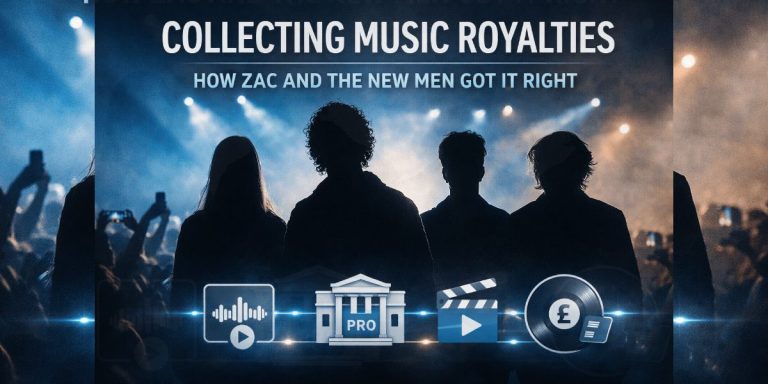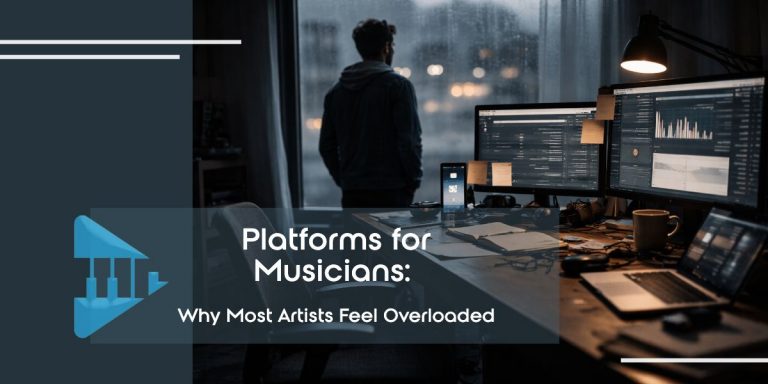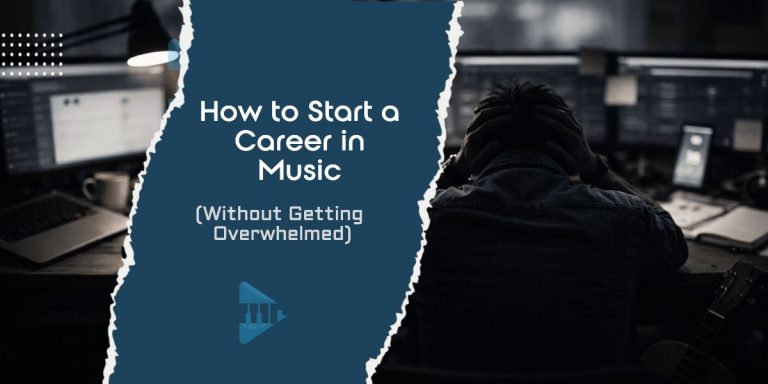
Table of Contents
ToggleTL;DR: PPL Licence Cost UK
Most UK businesses pay £129 to £515 a year for a PPL licence, depending on size and music use. One-off live events cost around £14. If you’re playing music in public, you likely need a licence. TheMusicLicence covers both PPL and PRS in one simple setup.
How Much Does a PPL Licence Cost in the UK?
PPL licence fees in the UK usually start at around £150 a year. Bigger businesses, especially those with multiple rooms or heavy music use, might pay over £9,000. Your fee depends on your business type, venue size, number of employees, speaker setup, and how the music is used. PPL PRS Ltd offers a calculator and example tariffs for different industries.
Now, here’s what that actually looks like in real life.
Maybe you’ve had music playing in the background for months. It feels right. Customers like it. It adds something.
Then a letter shows up. It’s not fan mail, it’s a licensing warning.
Playing music in public isn’t as simple as hitting play. You need the right licence.
But be careful, if you don’t have it, you could be on the hook for a lot more than just good vibes.
What is PPL Licencing?
If people in your space can hear the music, chances are you need a licence.
Whether it’s Spotify in the café, the radio in your salon, or a playlist during workouts, once the music hits a public setting, it’s no longer just personal listening. That means yes, you’ll need a licence to stay above board.
The organisation that handles this is called PPL — short for Phonographic Performance Limited.
PPL collects fees from businesses and passes that money to the people who made the music. That includes performers and record labels.
PPL makes sure artists get a cut when you use their work.
If you skip your license, it’s only a matter of time before someone calls you on it. Fines, letters, maybe worse. Easier to get it sorted from the jump.
If music is part of your atmosphere, even in the background, getting licensed isn’t just legal. It’s respectful. It keeps the cycle going for the artists behind the sound.
Difference Between PPL and PRS
While both PPL and PRS for Music collect royalties when music is used in public, they represent different parts of the industry.
- PPL looks after performers and record labels.
- PRS is the one that looks after the people who write the songs. -Composers, lyricists, and music publishers.
TheMusicLicence is what most businesses use today. It came out of a move in 2018 when PPL and PRS teamed up. Instead of dealing with two separate applications, you now fill out one and it covers both sides. – The recording and the songwriting.
That said, PPL and PRS still set their own rates. So your final cost depends on how your business uses music, how often you play it, and what setup you’ve got.
Why PPL Licencing is Essential for UK Businesses
Music changes everything. It sets the vibe, fills the silence, and gives your space energy.
Ever walked into a shop that felt too quiet? Music fixes that.
Music might feel like background noise, but you’re not fully covered if you’re playing it in a public space without a licence. Some businesses get warning letters. Others get fined. It’s avoidable.
And it’s not worth the stress.
Getting licensed isn’t just about following rules. It shows you take your business seriously. It tells your customers you care about the experience. And it shows artists that their work matters.
With TheMusicLicence, you can play millions of tracks legally. That includes playlists, radio, or even live sets.
You’re not just filling space with sound. You’re backing the people who make it.
Compliance with music licensing laws helps you build client trust and enhances your reputation.
Factors Affecting PPL Licence Costs
PPL licence fees are calculated based on several factors, including:
- Type of Business
The category of your business (e.g., retail shop, gym, bar) affects the licence rate.
- Square Footage
Larger venues tend to pay higher fees than smaller businesses.
- Number of Employees
The size of your workforce affects the license fee (increased music usage with more employees).
- Music Usage
Different fees apply for background music and live performances. Additionally, there are separate fees for using music as a featured element, such as in a dance class.
- Number of Speakers
If your business plays music across multiple rooms or through a high number of speakers, this will also affect your fee.
All of these details affect what you’ll pay. It’s not a one-size-fits-all model. That’s why it’s worth checking PPL PRS’s online cost guide to get a quote tailored to your business.
How Much Is a PPL Music Licence?
The cost of a PPL music licence depends on what kind of business you run and how you use music day to day. There’s no single price, but there are ballpark figures to help you understand what to expect.
Typical PPL Licence Costs by Business Type

Here are some typical examples based on public rates for small to medium-sized UK businesses:
Office or workspace (4 or fewer staff)
Playing music in a small office
Annual cost: around £129 plus VAT
Retail shop (50 square metres or less)
Music for browsing customers
Annual cost: around £330 plus VAT
Fitness classes
Instructor running three classes a week for most of the year
Annual cost: around £321 plus VAT
Hair or beauty salon (10 or fewer seats)
Playing music via radio or speakers
Annual cost: around £368 plus VAT
Café or small restaurant (30 seats or fewer)
Background music via radio or playlists
Annual cost: around £515 plus VAT
Pub or bar (400 square metres or less)
Radio or streamed music for customers
Annual cost: around £420 plus VAT
Live music one-off event (up to 100 guests)
Performance in a pub or bar
One-time fee: around £14 plus VAT
Disclaimer: These are estimates. Your actual rate depends on your setup – things like room size, number of speakers, staff count, and how often you play music.
You can get a more exact quote by using the PPL PRS cost tool and selecting your business sector.
Here’s a quick comparison of typical costs for different types of businesses:
| Business Type | Use Case | Estimated Annual Cost (+ VAT) |
| Office (≤ 4 staff) | Background music for a small team | £129 |
| Shop (≤ 50 sqm) | Music for customers while browsing | £330 |
| Fitness Classes | 3 sessions per week across most of the year | £321 |
| Hair & Beauty (≤ 10 seats) | Music via radio or speakers | £368 |
| Café / Restaurant (≤ 30 seats) | Background music during service | £515 |
| Pub / Bar (≤ 400 sqm) | Radio or streamed music for guests | £420 |
| Live Event (≤ 100 guests) | One-off live performance | £14 (one-time fee) |
Cost-Saving Strategies for PPL Licensing
Music licensing doesn’t have to wreck your budget. Here’s how businesses keep costs manageable.
Use TheMusicLicence
It covers both PPL and PRS. It may not always be cheaper, but it keeps things simple and legal.
Try royalty-free music
If you don’t need mainstream hits, royalty-free tracks offer a legal and often cheaper option. Pay once or subscribe, then use as needed.
Spread out your payments
PPL PRS lets you pay monthly instead of upfront. It helps with cash flow, though admin fees may apply.
Rethink your setup
More rooms, more speakers, and music used as a “feature” can raise costs. A few small changes might lower your rate.
Support indie artists
Platforms like Melody Rights help musicians register their work. That makes it easier for businesses to license music responsibly and support real creators.
Say you’ve got a small café with a single speaker and a handful of tables. Your licence might run you around £500 a year. If that feels steep, trimming the setup or switching to royalty-free music could bring the cost down.
The right choice depends on how you use music and what matters most to your brand. The key is to stay legal and be intentional.
Royalty-Free vs Licensed Music: Which One Makes Sense for You?
Not every business needs chart hits. Sometimes you just want the right vibe at the right price.
Licensed music gives you access to everything. That means popular tracks, big-name artists, and songs your customers already know. If your brand depends on that kind of recognition, this is the way to go. But it usually comes with ongoing fees and admin.
Royalty-free music is more flexible. You pay once or subscribe, then use the tracks without additional licences. The artists may not be household names, but the quality is often just as strong.
A lot of businesses use a mix. Royalty-free during the day. Licensed music for events or busier hours.
A typical retail shop might use royalty-free tracks during weekdays when foot traffic is slower, and switch to licensed playlists for weekends or special events. It’s one way to balance cost and atmosphere without skipping music entirely
There’s no single right answer. Choose what works for your sound, your space, and your customers.
Supporting the People Behind the Music
You’re not just filling the silence when you play music in your business. You’re choosing who gets heard and who gets paid.
At Melody Rights, we help independent artists get their work registered properly. That way, when their music is played in public, organisations like PPL and PRS can track it and send royalties to the right place.
That’s good news for musicians. But it also helps businesses who care about doing things right.
By supporting platforms that prioritise creators, you’re making sure the music you play actually benefits the people behind it. Melody Rights offers artists and rights holders tools, guidance, and support. And it gives businesses a more transparent way to connect with the music they use every day.
What is the business value of playing music in the UK?
According to PPL, music licensing for offices and gyms increased by 8% in 2024. Total revenue from public performance licences reached nearly £120 million, reflecting a growing recognition that music enhances business environments.
Do employees prefer workplaces that play music?
Most do, yes. Surveys suggest that music in the background can make people feel more relaxed and focused. It lifts the mood, helps the day move quicker, and creates a better vibe overall.
Do I need a licence to play music at a private party?
If it’s at home with invited guests and no ticket sales, you usually won’t need a licence. Once you open the invite list, play public music, or charge entry, that’s when licensing kicks in.
Can I use Spotify in my business?
Not really. Spotify and Apple Music are made for personal listening, not public spaces. If you’re playing music in a café, salon, or shop, you’ll need a proper licence to stay legal.
Do I need both a PPL and PRS licence?
In most cases, yes. One covers the people who recorded the music. The other covers the people who wrote it.
If you’re playing tracks in public, you’re usually using both parts, so you’ll need both licences. TheMusicLicence bundles them, but both sets of fees still apply.
How much does a PPL PRS licence cost?
It varies. A small salon might pay under £200 a year. A bigger venue or gym could be over £1,000.
It depends on things like your space, how many people you’ve got, and how you use the music. You can get a quote using the PPL PRS cost tool.
What happens if I don’t get a licence?
You might get a warning letter. In some cases, fines. Worst case, they tell you to cut the music completely. It’s usually easier to sort it early than deal with all that later.
Before You Go
If music’s part of your business, it should be working for everyone, including the people who made it.
You don’t need to spend thousands or become a licensing expert. Just figure out what setup fits your space and play it fair.
Artists depend on these royalties. Businesses depend on the atmosphere music creates. There’s a way to make both work.
Want to Stay on the Right Side of Music Licensing?
It’s worth knowing how it all fits together if you’re using music in your space. These quick reads can help you stay legal, avoid headaches, and understand who gets paid when the music plays:
- How to Register Music the Right Way
- 4 Types of Music Royalties Explained
- How Much Royalties Do Songwriters Get?
No fluff, just straight answers for businesses that want to get it right.



